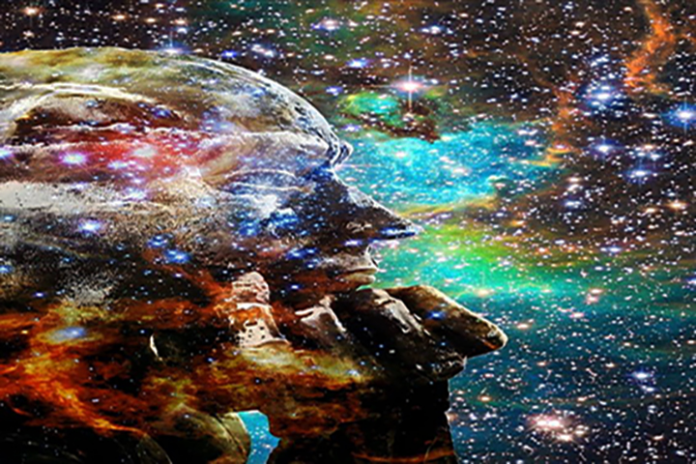In moments of stress, anxiety and other intense harmful mind states that we experience within our lives, it can be difficult to keep our focus on positive personal development. The thought of becoming an enlightened sage radiating seemingly-perpetual positive energy can seem far off… an unattainable goal given life’s everyday problems. True as it may seem to be, this is a mental mechanism that blocks our ability to see things for what they are, namely that, “Your Self is already inherently liberated. It is the ideas that have been imposed on that Self which must be set free,” as Gangaji once mused.
We’re going to take a look at 10 ways in which you can help shift your consciousness to a higher level of well-being. These tools, methods and mind states will help you become consciously evolved and on your way towards the expansion of your awareness.
Compassion
By being compassionate, we embrace the sympathetic consciousness of others’ distress, together with a desire to alleviate it. By experiencing compassion, we also experience the awareness of the interdependence of all things. Compassion is an active choice to want for others the alleviation of their suffering. Compassionate action is a willingness to go beyond our own self-interests for the good of others. We let go of our own needs to attend to the needs of others so that we can meet our own deepest need: to feel connected to something…to feel a part of a larger shared humanity.
Boundary Dissolution
By experiencing boundary dissolution, we experience a deconstruction and dissolving of boundaries that have been created by human cultures and societies and which have existed as long as the self-centered ego has influenced humanity. The purpose of boundary dissolution is to do away with these falsehoods that separate humanity instead of uniting it. When you dissolve the boundaries that divide and separate you from others, you will have the ability to transform your world into one of serenity, tranquility and peace. Oneness will not be just a philosophical concept but a reality that will be experienced by the totality of the human race.
Appreciation
When you appreciate someone, you are tuned into their positive qualities and express your empathy and gratitude for them. Appreciation results in positive vibration offered to all and further inspiration and expansion into a greater you. It’s a simple way to refresh ourselves, to open up heart-felt connections to ourselves and to others. Appreciation is both a fully-focused delight about whatever it is that feels good and a recognition of your own ability to intend and allow its manifestation.
Appreciate a deep relaxing breath of air or maybe the pleasurable radiant warmth of the sun. The simple things you might take for granted are all worthy of appreciation. As you do this, try to focus completely on the good this experience or item offers you, and acknowledge that you and only you have created it, no matter how it came to you. No matter your condition or circumstances, there will always be something that you can find to appreciate. If it seems that your life is lacking in happiness, just look for a single thing each day and honor your part in manifesting it, then think of any and every aspect of that item or condition that is a positive force in your life.
Inner Peace
Having inner peace means that we are mentally and spiritually at peace, with enough knowledge and understanding to keep ourselves strong in the face of difficult and stressful life experiences. In some culturesinner peace is considered a state of consciousness that can be cultivated by taking up things like meditation, Tai Chi or yoga. Many spiritual practices refer to this kind of peace as being an experience of knowing your own self. The solution to finding inner peace requires us to look at the problem from a new perspective. We cannot change the nature of the world or its problems, but we can add a new dimension to life that will give us peace.


We may not be able to eliminate all the problems of the world, but through meditation we can attain peace and happiness. We can make our family life more peaceful, loving and caring. We can help change the society in which we live. We can be a source of peace to all those around us. By leading a life in which we are caring and loving to others, we will develop into ideal human beings. By gaining inner peace, we can also achieve outer peace. Some people mistakenly think that the path of meditation is one of escapism. They feel that it requires you to sit in a cave or on a mountain top like a hermit. Meditation doesn’t lead to escapism, instead it makes us more alive.
Forgiveness
Forgiveness is the moment-to-moment experience of peace and understanding that occurs when someone who feels injured has their suffering reduced, as they transform their grievance against the person or group that initiated the experience that led to that suffering. Forgiveness involves a sense of felt unity with one who has hurt us and can be regressive or progressive. By embracing the feeling of forgiveness as something that can help us, we accept it as an aspect of acceptance, love, peace, and truth, instead of experiencing hatred, emotionalism, negativity, falsehood…all of which are aspects of resentment.
Forgiveness brings utter peace of mind. Resentment brings inner turmoil and suffering. Forgiveness means choosing to see the absolute perfection and beauty in everything. Everything and everyone is currently operating at its own level of awareness and/or evolution. Everyone and everything is what it is right now because that’s what it needs to learn or un-learn. People are what they are and make mistakes because they really don’t know otherwise or they don’t want to know otherwise. If they really knew otherwise, they would already be otherwise.
Mindfulness
Mindfulness is a state of mind where you pay attention in a certain way. Mindfulness practice expands your field of awareness, allowing for improved oversight of somatic and effective experiencing, thanks to which you can experience an enhanced capacity for self-regulation of our arousal, affect and behavior. Mindfulness is incredibly helpful to us for several reasons. For starters, it reflects only what is presently happening and in exactly the way it is happening. There are no biases.
Mindfulness is also the ability of the mind to observe without criticism. With this ability, you see things without condemnation or judgment. Nothing surprises you…you just take a balanced interest in things exactly as they are in their natural states. You don’t decide and you don’t judge…you just observe. Mindfulness registers experiences, but it does not compare them. It does not label them or categorize them. It just observes everything as if it were occurring for the first time. Mindfulness sees things as they really are. Once mindfulness becomes part of your everyday life, you develop the capacity to tolerate and accept painful experience, and you cultivate inner resources that help stabilize affect and reduce impulsiveness. For help with increasing your mindfulness, you should practice a meditation technique called vipassana, which was introduced around 2,500 years ago and has been specifically focused on experiencing a state of uninterrupted mindfulness.
Selflessness
When we are selfless, we shift our focus onto the needs of others, rather than keeping it on ourselves. It is the practice of being unselfish and minimizing the gratification of the ego’s wants and desires. In order to make the life-redefining shift from selfishness to selflessness, go and focus on the well-being of others. This can be done in countless ways. You can clean up your life and surrender a fully healed body, heart, mind and soul to others when entering a relationship. You can also be ready to share any amount of time needed by others whenever they need. Be happy with your life and with whatever you are offered by others. Whenever you are sure to give your very best possible, you are receiving exactly whatever you need for your greatest possible spiritual benefit.
Nostalgia
Nostalgia is a yearning for a return to some past period or seemingly-irrecoverable condition. It is the reliving of a past time, which is usually seen in a more positive light than the reality of that experience may have been. Studies have found that people who have a heightened level of nostalgia have higher self-esteem and are less prone to depression. Thinking of good memories for just 15 or 20 minutes a day can make you more cheerful than you were the week before, and happier than if you think of your current life. Nostalgia is a very potent mood booster, so if you seem to be in a bit of a funk, think about good memories of times past and you will experience higher self-esteem and feel more positively about friendships and close relationships.
Post-Materialism
As

We need to face the implications of population and consumption growth for pollution, climate change and environmental destruction. We need to realize that materialist values make for less happy lives. We need to identify and promote things in life that matter more than economic growth. We need to understand and experience the nature of the oneness and interconnectedness of all things and people.
Wonder
Wonder is the experience of those who reach a sense or state of so-called perfection in the ordering of the world. Experiences of wonder can lead us to a sense of transcendence and realization of higher states of being. From a mystical perspective, wonder relates to affirmation as wonder openings reveal the infinite and the source of all that is, which operate as gateways to uniting experiences. Energetically, wonder is an expression of Eros, a life force that propels one into the present moment and into life and that magnifies attentional capacities.
Buddhism

Written by: Paul Lenda
Source and read more at:
WakingTimes
Best Regards
TBU NEWS





